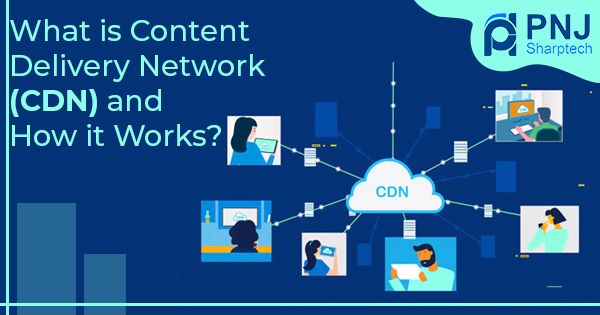Content delivery networks or CDN are the foundation of the internet that facilitates quick content delivery. An average person engages with CDNs almost every day. For instance, when you are going through any articles and news websites, watching a video, browsing through your social media or shopping on them, you are interacting with them. Many people may wonder exactly what is CDN. In simple words, it’s a network of many servers that are connected together. They deliver content safely, reliably, cost-effectively, and speedily. CDN places servers between different networks at the exchange points. It enhances connectivity and speed. Internet exchange points are the major locations where various internet providers connect to give one another traffic access that originates on their networks. Thus, by establishing a link to the richly interconnected and high-speed locations, a CDN provider minimizes the transmit times and cost in speedy data delivery.
Is There Any Difference Between CDN and a Web Host?
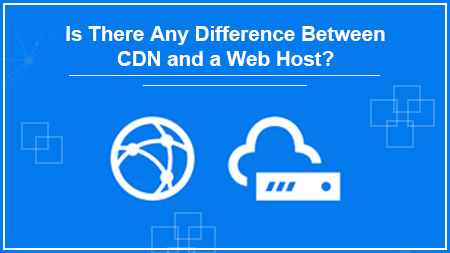
Some decades ago, traditional web hosting reigned supreme over everything else that occurred over the internet. There were various hosting companies that housed basic and corporate websites that consisted of small files that internet users could view and download. But today, CDNs have acquired prominence. Conventional web hosting is not at all capable these days of fulfilling the demands of websites.
Although CDN does not host content, it helps cache content at the edge of the network, which, in turn, accelerates the performance of the website. Website speed is critical for SEO purposes. So, if you want your website to perform optimally, then you should opt for CDNs when you avail of website development services. CDNs make use of caching to minimize hosting bandwidth. Thus, preventing interruptions in service and boosting security.
The Various Advantages of Using CDN
Now that you possess a fair idea of CDN, here are some of the major advantages it provides to users. Although the advantages of a CDN depend greatly on the requirement and size of an internet property, they can be divided into four main components.
Enhances loading times of websites – A CDN server distributes content nearer to website visitors. Consequently, they witness quick site page loading. People are not likely to stick around much on a site that takes a long time to load. Therefore, by speeding up the loading time, a CDN minimizes bounce rates and makes visitors stay on your website for a longer duration. It is why many web developers of renowned SEO services Noida recommend employing CDN.
Minimizes cost of the bandwidth – One of the significant expenditures for sites accrues from bandwidth consumption cost for hosting. So, optimizations like caching CDNs can minimize the extent of data that an origin server should give. It thus lowers the cost of website hosting for the site owners.
Enhancing the availability of content – The usual functioning of a website can be drastically impaired by a traffic overload or failure in hardware. But a CDN has a distributed nature. It can easily manage higher traffic and tolerate hardware failure better than other origin servers.
Enhances security of a website – A CDN provides optimizations, like improvements to security certificates and DDoS mitigation, which helps enhance the website’s security.
Working of a CDN
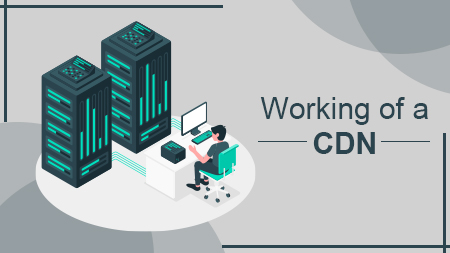
To boost speed and connectivity, a CDN places servers between varied networks at the exchange points. These IXPs or internet exchange points are the significant points where several internet providers connect to give access to traffic coming on their varied networks to others. A CDN makes use of several tools for storing a cached version of a website’s content. It is done in different locations that are called Points of Presence or PoP. The PoPs make use of caching servers that provide content to users in that geography.
Put simply, CDN is at the centre of information or data present all around the world. It ensures that your users get more comprehensive coverage. For instance, if a person is in New York, they can easily view your website via a local NY PoP. Consequently, your website works quicker and better.
How Is a CDN Able to Enhance Load Periods of a Website?
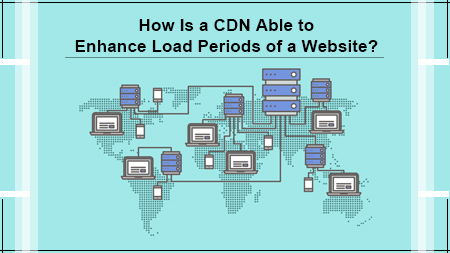
So precisely what is CDN role in enhancing the loading time of a website? It helps to minimize the loading time in the following manner:
A CDN is defined by its internationally distributed nature. Consequently, the distance between website resources and users is reduced. It enables users to connect to a geographically closer data centre. Thus, it reduces the travel time and, as a result, leads to quick service.
CDN optimizations like solid-state hard drives and effective load balancing facilitate speedy delivery of data to the user.
CDNs can minimize the sizes of files through compression and minification. Thus, it lowers the proportion of data that is transferred. A smaller size of file leads to fast load times.
CDNs are also beneficial for websites that use TLS/SSL certificates. It increases the speed of such sites through optimizing connection reuse and enabling the false start of TLS.
How Does a CDN Minimizes Downtime and Keeps Website Always Accessible Online
Various factors can prevent internet users from gaining accessibility to a website. Factors like hardware failures and malicious attacks can easily bring down servers. CDN possesses various functionalities that reduce downtime. It includes the following:
Load balancing disperses network traffic properly over a lot of servers. It makes it simple to scale swift increases in traffic.
Smart failover facilitates an uninterrupted service. It does so even when more than a single CDN server goes offline because of a hardware problem. The intelligent failover can redistribute network traffic to all the different operational servers.
If the whole data centre faces technical glitches or problems, the network addressing and routing method of Anycast transmits the network traffic to a different data centre. It, in turn, ensures that absolutely no user loses access to a specific website.
How Does CDN Ensure Data Security?
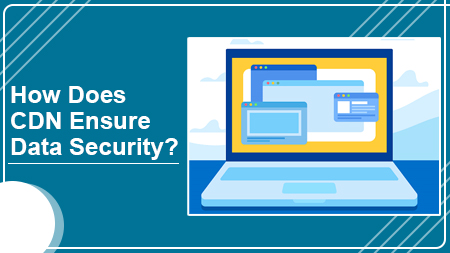
Data security is a crucial component of a CDN. It keeps a site safe and secure with the aid of fresh SSL/TLS certificates. It allows for greater authentication, integrity, and encryption. CDN offers different layers of protection for storing files on another person’s server. They are:
Encryption protocols are used to keep data private when it is transmitted between systems.
Password restrictions make sure that only users who are authorized are able to access your folders or account.
Suppose a person does manage to get into an area that is unauthorized. In that case, they should know more passwords before accessing confidential data like social security and credit card numbers.
For a CDN to successfully work, you are required to alter your root domain DNS setting and that of your subdomains. Don’t worry if it sounds too confusing. Today, the expert developers of SEO services Noida provide stepwise instructions to help you navigate the activation phase. They also give valuable assistance through their support team.
Final Words
Today, CDN has emerged as a necessary tool in how you manage your business. CDNs are behind most of the load on sites, helping you save on your web hosting costs. Now that you’ve understood what is CDN, why not opt for it for your website. It’ll be a significant step toward making it SEO optimized.
